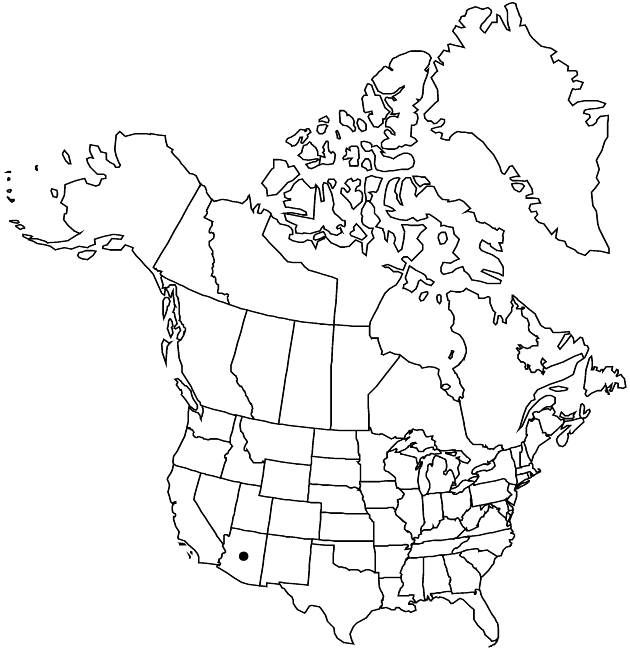Perityle ambrosiifolia
Phytologia 76: 325, fig. 1. 1994.
Perennials or subshrubs, 10–30 cm (stems brittle, densely leafy); usually villous, often with glandular hairs, sometimes pilose. Leaves: petioles 5–10 mm; blades 3-partite or compound-pinnatifid, 15–35 × 15–30 mm, lobes lobed, cleft, parted, or divided, ultimate margins crenate. Heads in corymbiform arrays, 7–10 × 6–11 mm. Peduncles 3–10 mm. Involucres campanulate. Phyllaries 14–20, linear to linear-lanceolate, 6–9 × 0.5–1.2(–2) mm (apices usually short-attenuate, sometimes acute). Ray florets usually 0 (sometimes 1–2 reduced rays in isolated heads, laminae color unknown, 3–5 × 1.5–2 mm). Disc florets 25–45; corollas yellow, tubes 1–1.2 mm, throats tubular to narrowly funnelform, 2–2.5 mm, lobes 0.6–0.8 mm. Cypselae narrowly oblanceolate, 3–4 mm, margins thin-calloused, short-hairy; pappi usually 0, sometimes of 1–3 moderately stout bristles 2.8–4.5 mm, often plus hyaline, laciniate scales. 2n = ca. 17.
Phenology: Flowering spring–fall.
Habitat: Rock crevices, cliff faces, and canyons
Elevation: 1000–1500 m
Discussion
Of conservation concern.
Perityle ambrosiifolia occurs in the vicinity of Clifton and Morenci in Greenlee County. Most heads are discoid; 1 or 2 ray florets sometimes appear on isolated heads; color of the laminae is not known; only dried specimens without the ray color noted have been examined. The species was first recognized by E. L. Greene in 1900; no record exists that the species as proposed by him was formally published. Perityle ambrosiifolia is morphologically and geographically distinct from P. lemmonii and may have resulted from either intrasectional or intersectional hybridization between two of several possible taxa.
Selected References
None.
